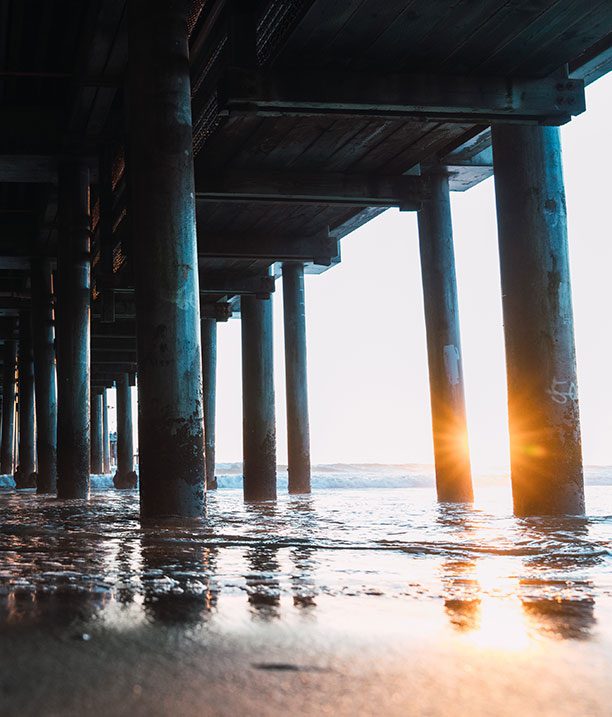Aluminum or Zinc Pier/Piling Anode Manufacturing
We have over 50 years of experience in Non-ferrous Alloy manufacturing.
At Purity Alloys we manufacture a wide variety of Pier & Piling Sacrificial Anodes providing cathodic corrosion protection for the marine environment. Purity Casting Alloys has been manufacturing Pier & Piling Sacrificial Aluminum and Zinc Anodes since 1992.
Pier & Piling Anodes are available in either Aluminum or Zinc with the following variety of cores:
- Flat Bar Steel
- Steel Pipe
- Threaded Rod
- "Eye Bolt" or Galvanized Cable.

All of our Pier & Pilling Anodes are custom made to order.
We can attribute our success in the Anode business to our consistent commitment to product quality, product availability, and custom Anode sizes for all varieties of projects. With our onsite spectrographic analysis, you can be assured of alloy consistency from Anode to Anode.
The Advantages of Aluminum Anodes
Many manufacturers and boaters prefer aluminum anodes over zinc or magnesium for several reasons.
- Aluminum has become more affordable in recent years, making it a popular choice for installing sacrificial anodes on vessels, engines, and other equipment.
- Aluminum anodes protect effectively in saltwater, perform better in upper brackish water, and decently in freshwater, but they tend to develop an oxide coating (passivation) faster than zinc. Regular cleaning prevents this, ensuring aluminum anodes remain effective.
- EPA reports indicate that magnesium and aluminum anodes are more environmentally friendly than zinc, though the environmental impact of zinc is minimal.
The Advantages of Zinc Anodes
Zinc is the ideal sacrificial anode when a vessel is docked or anchored in seawater for extended periods.
- Unlike other metals, zinc is better at shedding film buildup, continuously exposing fresh zinc to the water and keeping the anode electrochemically active. Aluminum anodes, in contrast, can develop a crust that passivates the anode, making it less effective.
- The longer a vessel sits idle, the greater the risk of anode passivation. However, when the vessel is moving, the water flow helps clean off the oxide layer and reactivate the anode, regardless of the metal type.
- For vessels that are regularly active in saltwater, both zinc and aluminum anodes work well. But if a boat remains stationary for extended periods in saltwater, zinc anodes are the better choice.